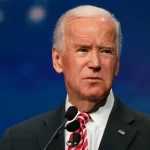After more than a decade of superstar motion in the NBA, Kevin Durant’s trade offer could be the final straw that pushes club owners to rethink their policies.
After all, if a York City market superstar entering a 4-year agreement for roughly $200 million can push his way out, then a deal between a player and a franchise could as well be inscribed in invisible ink.
LeBron James’s free agency departure from the Cleveland Cavaliers in 2010 to join the Miami Heat, which prompted a wave of other players to do the same, looks to have gone poorly, as evidenced by the uproar that followed Kevin Durant’s request to be traded.
Kevin Durant Was Not The Only One To Do This
As time went on, NBA chairman Adam Silver talked about striking a balance between how the league has changed over the past two decades and how that change has contributed to the NBA’s rising profile.
This is not to say that Kevin Durant’s trade offer did not cause a blast wave through the NBA ecosystem, but as one club owner noted to Yahoo Sports, the Nets are under no obligation to trade Durant.
The owner of the team has stated that there is “not an issue” of players requesting trades while they still have numerous years left on their contracts. A player in such a position “may test his leverage, however at the close of the day, guys are under obligation, and you do not have to deal them,” an executive said.
There is no point in debating if Kevin Durant’s decision to leave the Nets is reasonable considering the freedom he is been afforded there. Given that Durant approved of Steve Nash’s hiring as head coach and the Nets’ decision to acquire Kyrie Irving and all of the complications he brings, it is safe to say that the team has given Durant’s opinion considerable weight.






